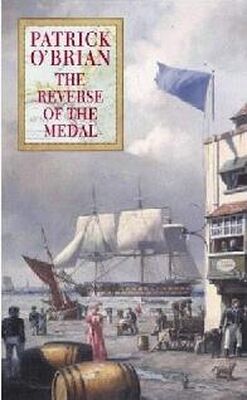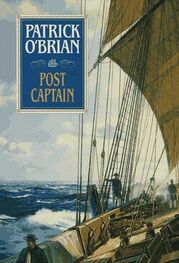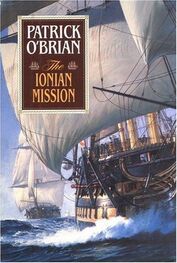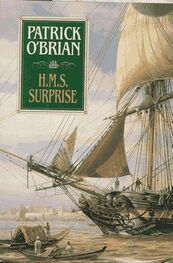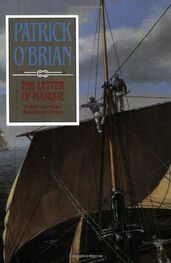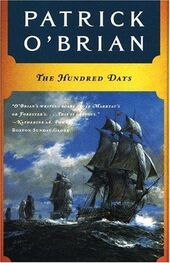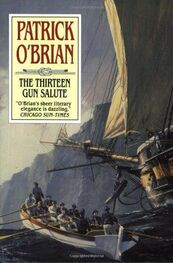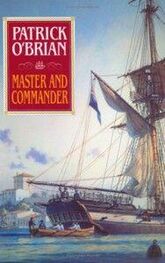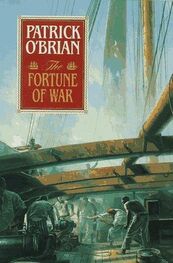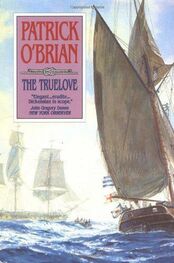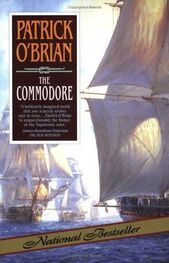'Well, sir?' asked Stephen, when they were on the quarterdeck again.
'Well, sir,' said Butcher, 'there is sepsis, as you know very well; but as for the turn it will take…' He imitated the motion of an uncertain balance with his hands, and added 'If there were some triumph, or if he had sudden good news it might turn the scale; but as things stand perhaps it would be wise to prepare for an unfavourable termination. I do not suppose you mean to attempt any heroic remedies?'
'I do not. It is a frail constitution there, much fretted with acrimony and discontent and domestic misfortune. Let us go and look at Captain Palmer.'
By this time the court-martial had decided against the request of three of the prisoners to have their cases tried separately; the charges against each had been read with all the necessary but wearisome legal repetition; and the machine that would grind slowly on until they were hanged by the neck was now in full motion.
There had been little dispute about identity. The description of all the Hermione mutineers had been circulated to every naval station: 'George Norris, gunner's mate, aged 28 years, five feet eight inches, sallow complexion, long black hair, slender build, has lost the use of the upper joint to his forefinger of the right hand, tattooed with a star under his left breast and a garter round his right leg with the motto Honi soit qui mal y pense. Has been wounded in one of his arms with a musket-ball.' 'John Pope, armourer, aged 40 years, five feet six inches, fair complexion, grey hair, strong made, much pitted with smallpox, a heart tattooed on his right arm.' 'William Strachey, aged 17 years, five feet three inches, fair complexion, long dark hair, strong made, has got his name tattooed on his right arm, dated 12 December.' There was no arguing with such evidence and although a few men asserted that they had shipped under a purser's name to avoid debt or a bastardy order and that an indictment using a pseudonym was invalid, this carried no weight, a naval court-martial having no use for quibbles that might have answered at the Old Bailey; and most of the accused acknowledged their identity. But so far none had acknowledged his guilt: the blame lay elsewhere, they said, and some of them did not scruple to say just where it lay, and to name the active mutineers. At present Aaron Mitchell was arguing passionately that as a boy of sixteen he could not have held out against the violent fury of two hundred men - that it would have been death to oppose them, and utterly useless - that he had wholly abominated the handing-over of the ship to the Spaniards, but that he was wholly powerless to prevent it.
There was a good deal of truth in what he said, thought Jack: it would have called for extraordinary moral strength and courage in a young fellow to withstand the determination of full-grown men, some of them fierce and bloody-minded brutes, who had been goaded beyond all endurance. Beyond all limits: Hugh Pigot, with the enormous powers of the captain of a man-of-war, had turned the Hermione into a hell afloat. The evening before the mutiny, the crew were reefing topsails: he roared out that the last man off the mizentopsail yard was to he flogged. Pigot's floggings were so dreaded that the two hands farthest out, at the weather and lee earings, on the yardarm itself, leapt over the inner men to reach the backstays or shrouds, their downward path, missed their hold and fell to the quarterdeck. When Pigot was told by those who picked them up that they were dead he replied 'Throw the lubbers overboard.'
Yes, but most unhappily Mitchell's was the usual line of defence, and every repetition weakened it disastrously. For the fact remained that the mutineers killed not only Pigot but also the first, second and third lieutenants, the purser, the surgeon, the captain's clerk, the Marine officer, the bosun, and the young midshipman, Sir William's cousin; and the ship had been handed over to the enemy.
The surviving carpenter and gunner spoke of no seaman being shouted at or hustled or wounded, far less killed, for opposing the mutineers. Yet man after man said that he had had nothing to do with it, that he had been overborne, that he had begged them for God's sake to consider what they were about, but in vain. Some of the more articulate spoke surprisingly well; some others were of the familiar sea-lawyer kind who used legal terms and harried the witnesses, telling them th remember they were on oath and that perjury was death in this world and hell everlasting in the next; but most, intimidated by their surroundings and dispirited by their long imprisonment, made little more than dull, mechanical, obstinate denials, denials of everything. Yet they nearly all stood up for themselves; they nearly all tried to defend their lives with what skill and intelligence they possessed, although they must have known that there was very little hope.
In fact there was none. The court was dead against them and the case had been decided long before ever the sitting began. Quite apart from the abhorrence that this particular mutiny aroused, the evidence against the men was overwhelming; and to make doubly sure two of them had been allowed to turn informer and peach on the rest, their lives being promised them. Yet still the men resisted, struggling in the midst of accusations and counter-accusations, as though the court's decision could really be affected by what they did.
Jack listened to them with a grave, attentive expression, his spirits sinking steadily as the hours passed by. On his left hand sat Captain Goole, the president of the court, and on his right a grey-headed commander; beyond Goole there was Berry of the Jason and beyond him a young man named Painter, recently promoted commander and given the Victor sloop. They sat, a solid bench of blue and gold, all with much the same grave, self-contained look, and before them, at a table covered with papers, Stone, the deputy judge-advocate, helped by his clerks, directed the game. For a game it was, an odious game; and like most games it had intricate rules, one of which was that the accused should be allowed to have their say, should be allowed to cross-question the witnesses and address the court, so that the performance should have all the appearance of a fair, impartial trial. There was something very deeply unpleasant in playing a part in this solemn farce, something horribly indecent about being in the judgment seat and watching the others in their hopeless struggle. Jack could not lay his hand on his heart and swear that in young Mitchell's place he would have risked his life for the infamous Pigot: there were probably several men who had in fact been swept along in terrified neutrality, but it was utterly impossible to say who they were, and in any case those who had turned King's evidence swore that there was not one of the accused who had not taken up arms. How he wished he had knocked them all on the head in hot blood: how he wished that his duty did not require him to sit here in righteous squalor.
Not that the squalor was all on the safe, well-dressed, well-fed side of the table either; the thin, prison-hulk-pale, dirty, ragged, long-haired, unshaved prisoners, grotesque in front of their immaculate scarlet guard of Marines, had now in many cases abandoned themselves to naked lying and to throwing the blame wherever they thought it might stick. Of course it was infinitely more understandable on that side of the room, but that made it none the prettier. Jack had seen the strong mutual loyalty of seamen break down before now. He had seen men in overcrowded boats pulling away from a sinking ship thrust their swimming shipmates back and even cut off their fingers as they clung to the gunwale. This was much the same kind of spectacle.
By the time the court adjourned for a late dinner his spirits were very low indeed, all the more so because it was now apparent that the trial was going to last some time.
Читать дальше